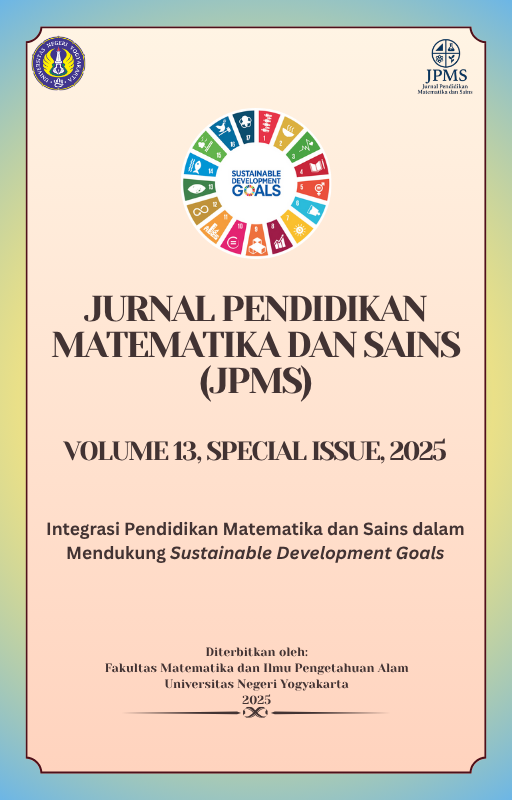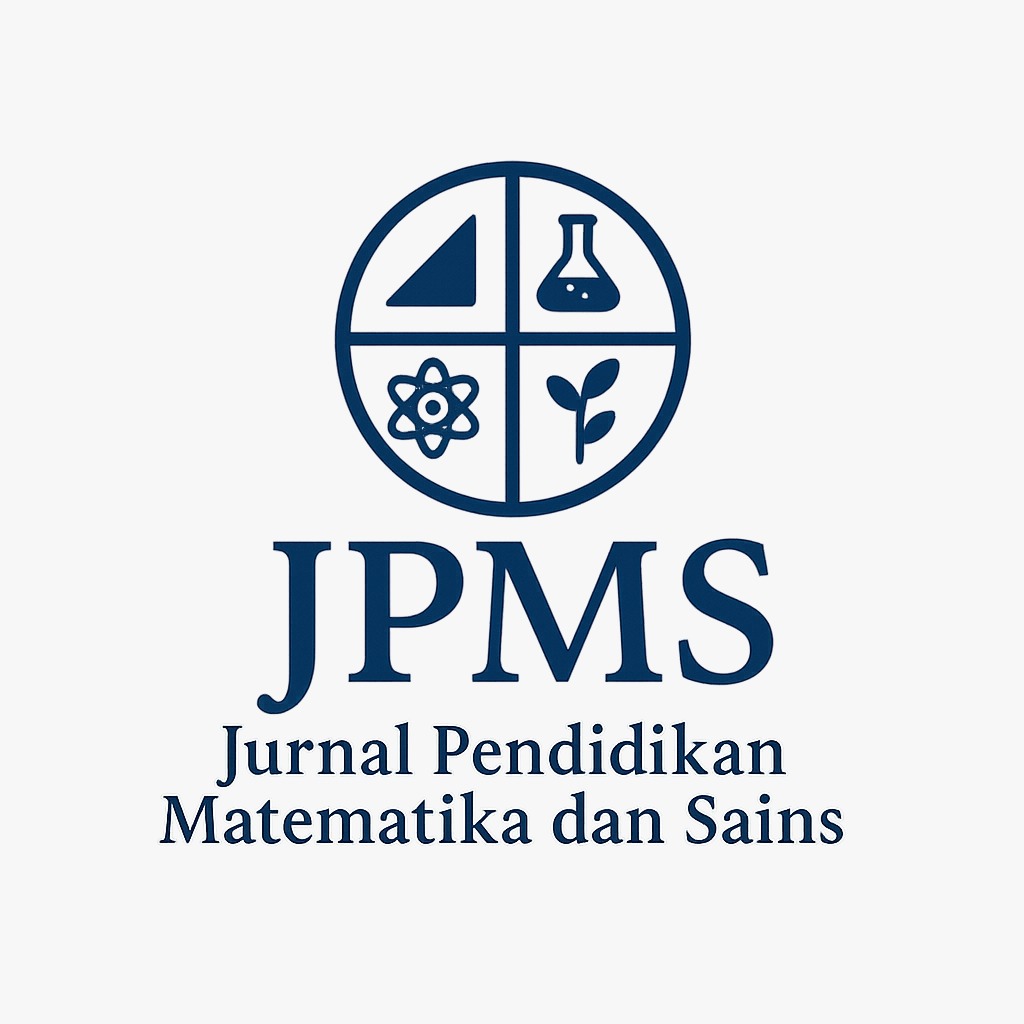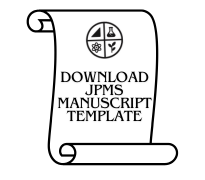Pengembangan Instrumen Kegigihan Akademik untuk Siswa Sekolah Menengah Atas pada Materi Titrasi Asam Basa
DOI:
https://doi.org/10.21831/jpms.v13iSpecial_issue.89606Keywords:
Kegigihan akademik, Kimia, Pengembangan instrumenAbstract
Penelitian ini bertujuan untuk mengembangkan instrumen kegigihan akademik peserta didik yang mempelajari mata pelajaran kimia pada materi titrasi asam basa. Penelitian ini merupakan Research and Development dengan subjek penelitian ini sebanyak 155 peserta didik kelas XI SMA di Tapung yang dipilih menggunakan teknik convenience sampling. Validitas isi instrumen dilakukan dengan koreksi oleh expert Judgement. Validitas konstruk dibuktikan dengan analisis Exploratory Factor Analysis (EFA) dan Confirmatory Factor Analysis (CFA). Estimasi reliabilitas dilakukan dengan menggunakan Cronbach’s Alpha, sedangkan kualitas butir item dianalisis menggunakan Item Response Theory (IRT). Instrumen terdiri dari 8 butir pernyataan yang valid secara konstruk (faktor loading ≥ 0,5) dan reliabel untuk mengukur kegigihan akademik peserta didik dengan nilai Cronbach’s Alpha >0,8. Artinya instrumen kegigihan akademik ini dapat membantu mengetahui tingkat kegigihan akademik siswa yang sejalan dengan tujuan SDGs dalam menciptakan generasi yang berdaya saing, berkarakter dan berkontribusi positif terhadap pembangunan berkelanjutan.
References
Alfiyah, N., Chalisah, N. D., & Zuhriyah, I. A. (2025). Validity and reliability of instruments: Students’ perception of Google Classroom and interest in learning Islamic religion. JISAE, 11(1), 13–21. https://doi.org/10.21009/jisae.v11i1.52521
Alnahdi, A. H., Alsubiheen, A. M., & Aldaihan, S. K. (2025). Rasch analysis of the Arabic version of the Oswestry Disability Index: Evidence of reliability and unidimensionality. Journal of Clinical Medicine, 14(4), 1259. https://doi.org/10.3390/jcm14041259
Andino, G. P., Vega, A. M., Salazar, G. S., Contreras, B. N., Lay, N., & Gil, M. (2025). Systematic review of studies using confirmatory factor analysis for measuring management skills in sustainable organizational development. Sustainability, 17(6), 2373. https://doi.org/10.3390/su17062373
Baghaei, P., & Christensen, K. B. (2023). Modelling local item dependence in C-tests with the loglinear Rasch model. Language Testing. Advance online publication. https://doi.org/10.1177/02655322231155109
Boos, D. D. (2023). Confirmatory factor analysis: Foundations and extensions. In International encyclopedia of education (4th ed., pp. 607–618). Elsevier. https://doi.org/10.1016/B978-0-12-818630-5.10016-8
Byrne, B. M. (2016). Structural equation modeling with AMOS: Basic concepts, applications, and programming (3rd ed.). Routledge.
Chang, R., & Goldsby, K. A. (2016). Chemistry (12th ed.). McGraw-Hill Education.
Daryanto, & Karim, S. (2017). Pembelajaran abad 21. Gava Media.
Duckworth, A. L., Peterson, C., Matthews, M. D., & Kelly, D. R. (2007). Grit: Perseverance and passion for long-term goals. Journal of Personality and Social Psychology, 92(6), 1087–1101. https://doi.org/10.1037/0022-3514.92.6.1087
Dweck, C. S. (2006). Mindset: The new psychology of success. Random House.
Fatimah, S., dkk. (2024). Pelatihan pengembangan instrumen penilaian keterampilan dan implementasi dalam pembelajaran kimia di SMA Swasta St. Familia Sikumana Kupang. Panrita Abdi: Jurnal Pengabdian Masyarakat, 7(1), 1–10. https://journal.unhas.ac.id/index.php/panritaabdi/article/view/31440
Ghozali, I. (2017). Model persamaan struktural: Konsep dan aplikasi dengan program AMOS 24. Badan Penerbit Universitas Diponegoro.
Hair, J. F., Black, W. C., Babin, B. J., & Anderson, R. E. (2019). Multivariate data analysis (8th ed.). Cengage Learning.
Hamalik, H. (2019). Dasar-dasar pengembangan kurikulum. PT Remaja Rosdakarya.
Johnson, R. A., & Wichern, D. W. (2014). Applied multivariate statistical analysis (7th ed.). Pearson Education Limited.
Kline, R. B. (2016). Principles and practice of structural equation modeling (4th ed.). Guilford Press.
Lu, H., Na, W., & Wenfa, Z. (2021). Personality and internet use: A meta-analysis. EBIMCS, 816, 279–286. https://doi.org/10.1145/3511716.3511759
Manurung, J. C., & Kristianti, Y. (2023). Dampak kesulitan siswa terhadap hasil belajar kognitif kimia pada materi tata nama senyawa kelas X IPA di SMA Negeri 1 Warmare. Arfak Chem: Chemistry Education Journal, 6(1), 480–486. http://jurnal.unipa.ac.id/index.php/accej
Paramarta, W. A., Supartha, I. W. G., Dewi, I. G. A. M., & Surya, I. B. K. (2023). Confirmatory and exploratory factor analysis for validating the academic leadership questionnaire for Indonesia’s private higher education. Migration Letters, 20(6), 232–241. https://doi.org/10.59670/ml.v20i6.3475
Pratama, F. I., Rohaeti, E., & Laksono, E. W. (2025). Building sustainable education with the literacy and research-oriented cooperative problem-based learning: A bridge in the activeness of chemistry education students. Jurnal Pendidikan Matematika Dan Sains, 13(Special_issue), 61–68. https://doi.org/10.21831/jpms.v13iSpecial_issue.88392
Priliyanti, A., Muderawan, I. W., & Maryam, S. (2021). Analisis kesulitan belajar siswa dalam mempelajari kimia kelas XI. Jurnal Pendidikan Kimia Undiksha, 5(1), 11–18. https://doi.org/10.23887/jjpk.v5i1.32402
Robitzsch, A. (2024). Pairwise likelihood estimation of the 2PL model with locally dependent item responses. Applied Sciences, 14(6), 2652. https://doi.org/10.3390/app14062652
Rosana, D., Widodo, E., Setianingsih, W., & Setyawarno, D. (2020). Developing assessment instruments of PISA model to measure students’ problem-solving skills and scientific literacy in junior high schools. Journal of Physics: Conference Series, 1440(1), 012049. https://doi.org/10.1088/1742-6596/1440/1/012049
Sapsuha, N., Soamole, S., & Kota, F. (2024). Pentingnya pendidikan karakter dalam dunia pendidikan. JBES: Journal of Biology Education and Science, 4(1).
Smith, J., & Lee, K. (2024). How and when resilience can boost student academic performance: A weekly diary study on the roles of self-regulation behaviors, grit, and social support. Journal of Happiness Studies, 25, Article 36. https://doi.org/10.1007/s10902-024-00749-4
Stanton, K., Watts, A. L., Levin-Aspenson, H. F., Carpenter, R. W., Emery, N. N., & Zimmerman, M. (2023). Focusing narrowly on model fit in factor analysis can mask construct heterogeneity and model misspecification: Applied demonstrations across sample and assessment types. Journal of Personality Assessment, 105(1), 1–13. https://doi.org/10.1080/00223891.2022.2047060
Sterner, P., De Roover, K., & Goretzko, D. (2025). New developments in measurement invariance testing: An overview and comparison of EFA-based approaches. Structural Equation Modeling, 32(1), 117–135. https://doi.org/10.1080/10705511.2024.2393647
Sudjana, N. (2019). Penilaian hasil proses belajar mengajar. PT Remaja Rosdakarya.
Sugiyono. (2017). Metode penelitian pendidikan: Pendekatan kuantitatif, kualitatif, dan R&D. Alfabeta.
Sunderland, K. M., Beaton, D., Fraser, J., Kwan, D., McLaughlin, P. M., Montero Odasso, M., Peltsch, A. J., Pieruccini-Faria, F., Sahlas, D. J., Swartz, R. H., & Strother, S. C. (2019). The utility of multivariate outlier detection techniques for data quality evaluation in large studies: An application within the ONDRI project. BMC Medical Research Methodology, 19(1), Article 102. https://doi.org/10.1186/s12874-019-0737-5
Tang, D., Boker, S. M., & Tong, X. (2024). Are the signs of factor loadings arbitrary in confirmatory factor analysis? Problems and solutions. Structural Equation Modeling: A Multidisciplinary Journal, 32(1), 142–154. https://doi.org/10.1080/10705511.2024.2351102
United Nations. (2015). Transforming our world: The 2030 agenda for sustainable development. United Nations. https://sdgs.un.org/2030agenda
Young, K. A., & Archer, E. (2023). Validating the Grit-S scale among postgraduate students in a South African distance education institution. Frontiers in Education, Article 1229433. https://doi.org/10.3389/feduc.2023.1229433
Zafrullah, Z., Mayola, E., Ayuni, R. T., & Adhelia, C. (2023). Development of instruments for learning independence for high school students: Construct validity and reliability. Beginner: Journal of Teaching and Education Management, 1(2), Article 40. https://doi.org/10.61166/bgn.v1i2.40
Zheng, Z., Cheng, J., & Peng, J. (2015). Design and implementation of teaching system for mobile cross-platform. International Journal of Multimedia and Ubiquitous Engineering, 10(2), 26–35. https://doi.org/10.14257/ijmue.2015.10.2.26.
Downloads
Published
How to Cite
Issue
Section
Citation Check
License

This work is licensed under a Creative Commons Attribution-ShareAlike 4.0 International License.
Jurnal Pendidikan Matematika dan Sains allows readers to read, download, copy, distribute, print, search, or link to its articles' full texts and allows readers to use them for any other lawful purpose. The journal allows the author(s) to hold the copyright without restrictions. Finally, the journal allows the author(s) to retain publishing rights without restrictions
- Authors are allowed to archive their submitted article in an open access repository
- Authors are allowed to archive the final published article in an open access repository with an acknowledgment of its initial publication in this journal

This work is licensed under a Creative Commons Attribution-ShareAlike 4.0 Generic License.





